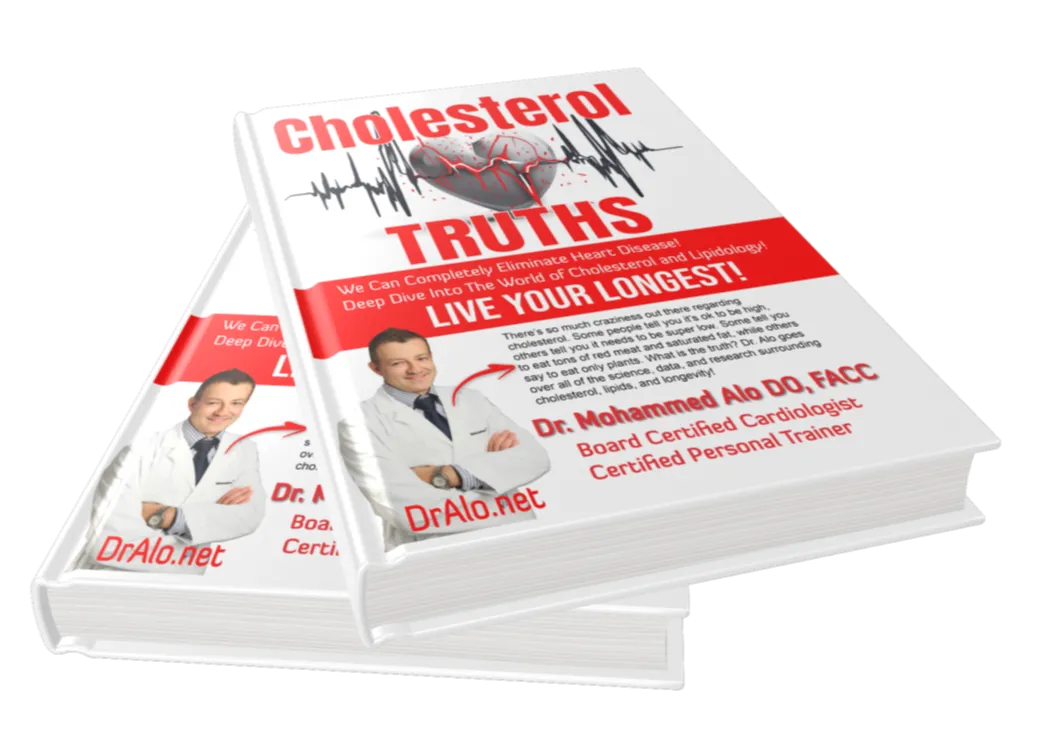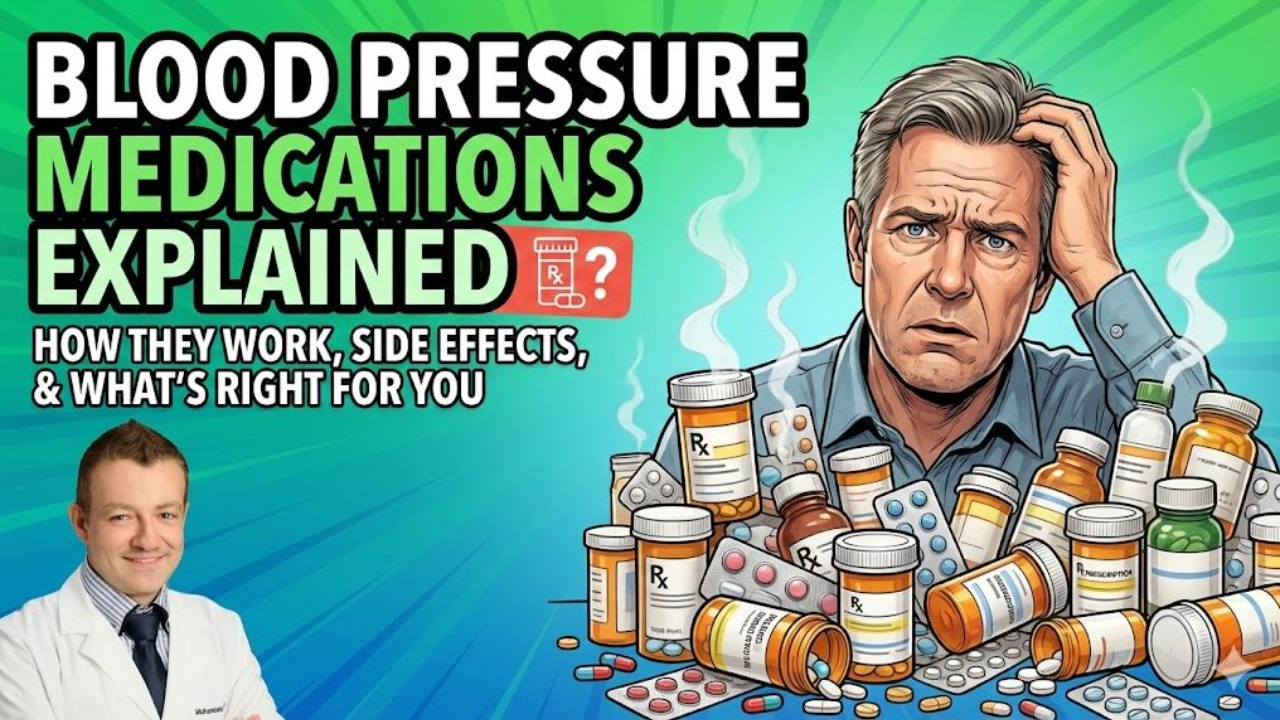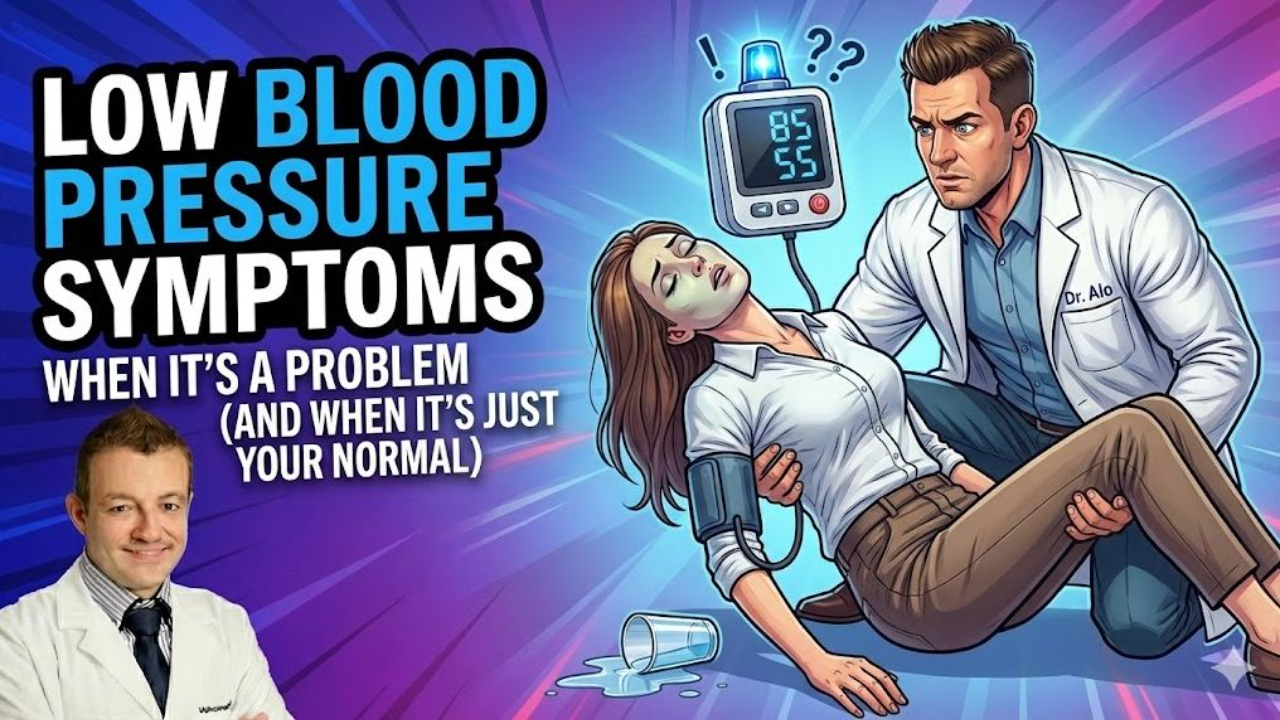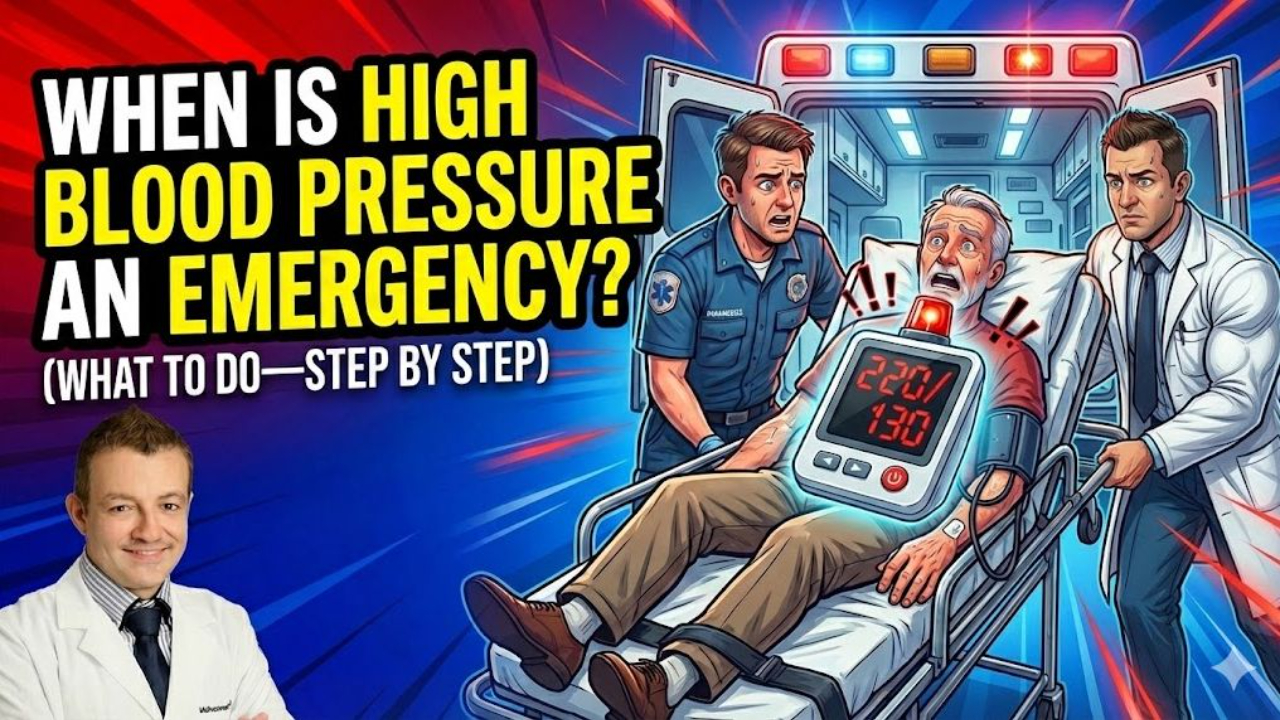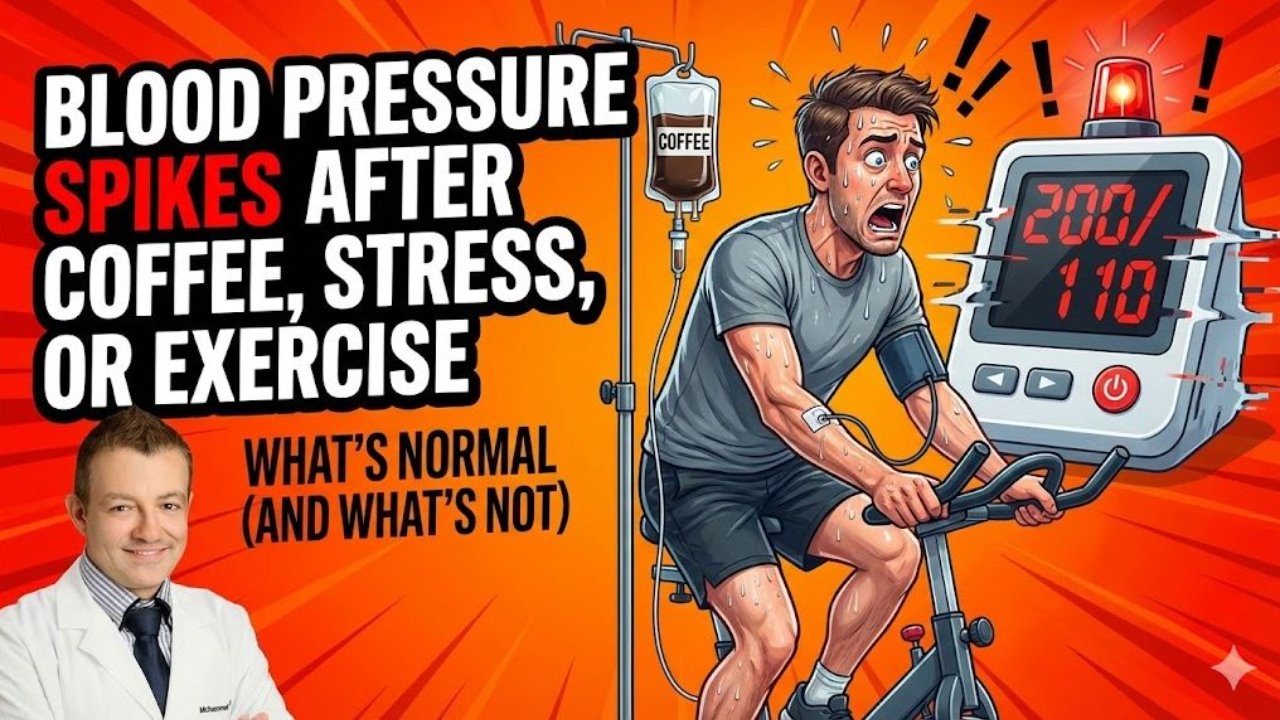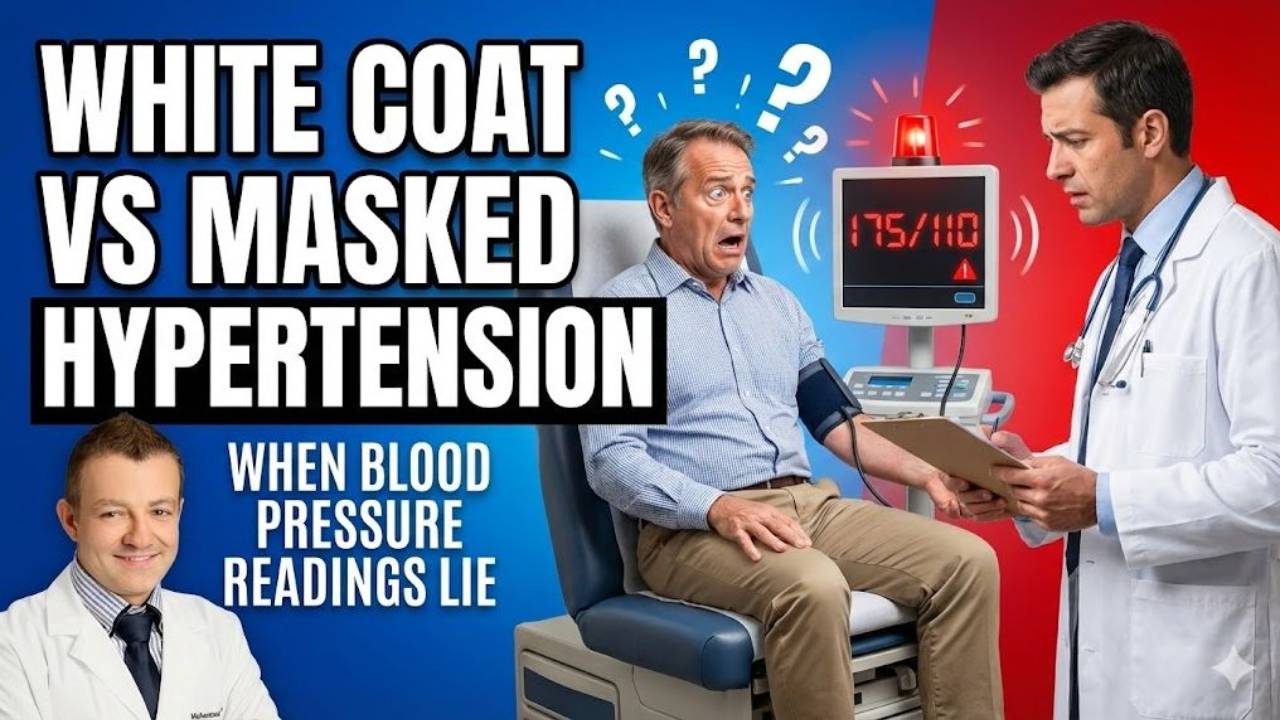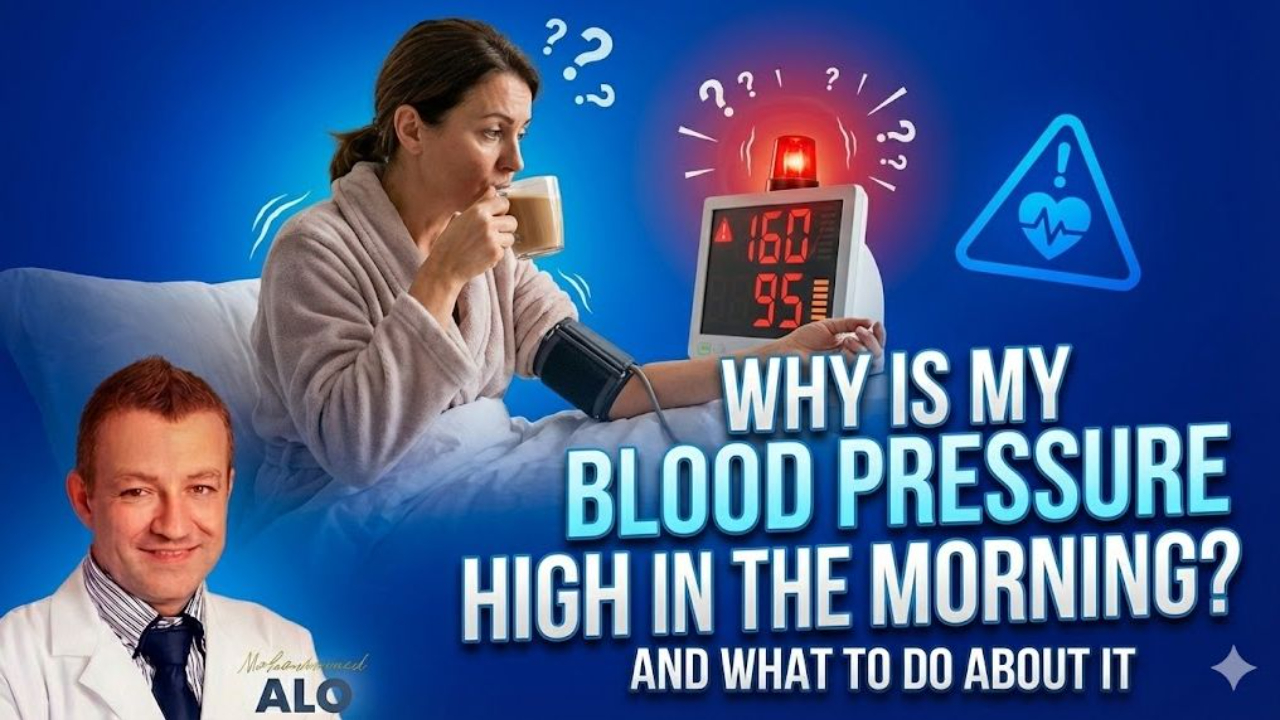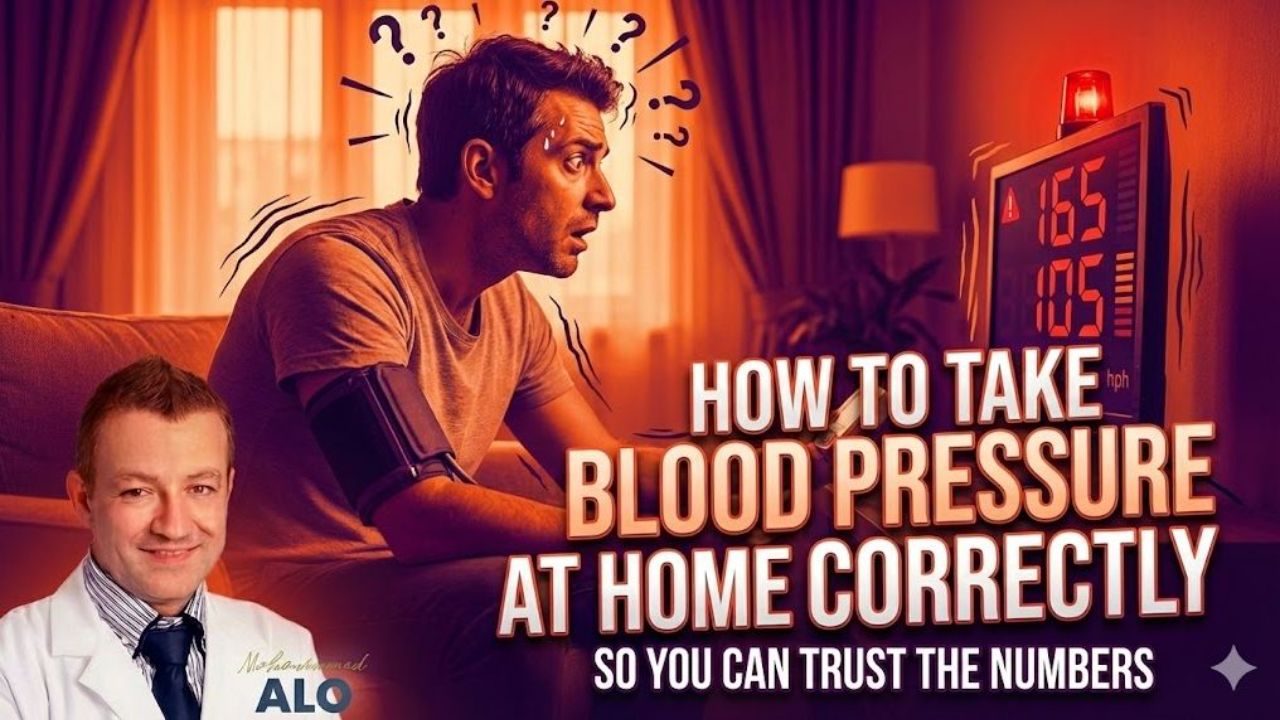Preventative Cardiology
Mar 01, 2023
Preventative Cardiology: We Can Now Completely Eliminate Heart Disease
"I wish I would have met you 40 years ago"
As a cardiologist, the biggest problem is that I see patients after it's too late. I see patients that actually need a cardiologist. Most of my patients tell me they wish they would have met me 40 years ago, when we could have made a few small changes to completely prevent heart disease. We now have the technology and ability to completely eliminate atherosclerotic heart disease. But we don't! The system is broken.
Heart Disease Prevention
I want to make sure you never need a cardiologist. Every day I am fighting against a healthcare system that is stacked against my patients and against our wellness. It's truly a "sickcare" system, not a "healthcare" system. And it's so sad and disheartening. For decades, I have been working in this system hoping to make it better, but it seems like there is no way to change this system. We have to go around it. There is no way to see a cardiologist before you absolutely have to see one.
We Can Now Completely Eliminate Heart Disease!
The Fight Against Heart Disease
We have made progress and we are getting better at treating heart disease. But what can we do for those that want to completely prevent heart disease?
Despite all of our technological and medical breakthroughs, heart disease is still the leading cause of death in the United States. Every year, millions of people are diagnosed with heart disease, like coronary artery disease. peripheral artery disease, heart failure, TIAs, strokes, and heart attacks. This doesn't have to happen. We can completely eliminate all of atherosclerotic heart disease with a few modifications. But, I have to see you decades before these changes start to take place. "40 years before."

The above illustration shows the progression of coronary artery disease over decades. This does not need to happen. We now have the ability to completely eliminate this type of heart disease, which leads to the vast majority of other cardiac issues.
Preventing Cardiac Risk Factors
While some risk factors for heart disease, such as age, sex, and family history, cannot be changed, there are many things we can do to help you reduce your risk to almost zero. The most important thing you can do for yourself is to work with a preventive cardiologist decades before you actually have heart disease. Participating in a preventive cardiology program is the single best gift you can do for your self. You can work with me one on one and or in my preventative cardiology community.
The Cardiologist Difference
While any primary care doctor or nurse can order blood tests, they rarely have the depth of knowledge to know when something isn't right. Or by the time your labs are off, it's a bit too late. The best example of this is "pre-diabetes". People are pre-diabetic for years before it finally gets bad enough to become "diabetes". Why should we allow all that inflammation and destruction of your retinas, kidneys, arteries, and heart before we finally treat it? It's obvious when someone is pre-diabetic on their labs. Why don't we attack it "early and often" to prevent it from progressing and causing irreversible damage?
The same goes for cardiometabolic diseases. Why wait? Working with a highly specialized preventative cardiologist can help you prevent heart disease before it ever begins. As a preventative cardiologist that has spent two decades in medicine, I know what tests to order (it's not just a standard lipid panel) and when to act to prevent further damage. This will insure that you are actually eliminating certain cardiac diseases and not simply managing them once they occur later in life. Once the damage is done, it's very hard to fix.
Your primary doctor or nurse will refer you to a cardiologist only "if needed". Or they wait until something is very wrong. Or I meet you at the hospital after your heart attack or stroke. This is backwards and way too late. Healthcare is upside down. By the time they refer you to a cardiologist, it's too late and you have late stage cardiovascular disease. Your coronary arteries may already be plugged up. It's very important to see a cardiologist "early and often" to prevent cardiometabolic disease. Why wait?
Not Every Cardiologist is a Preventative Cardiologists!
You may think, "Well, I already see a cardiologist". Or you think you can just Google one and find the closest cardiologist and they seem to have good reviews, maybe they are good enough. Unfortunately, this isn't always the case. Not all cardiologist are well trained in prevention. But we are very good at managing disease "after the fact".
Preventive cardiologists are cardiologists who specialize in the prevention of heart disease. I work with my patients to identify and manage risk factors for heart disease before they manifest and before they are no longer treatable. Part of my job is to order advanced testing that your standard practitioner or standard cardiologist may not order due to time limits, insurance limitations, and a multitude of other factors.
Who Is At Risk?
Autopsies have been done on young soldiers, as young as 20 years old, and we have found plaque in their arteries. We have done autopsies on fetuses that were miscarried and have found fatty streaks (the precursor to heart disease) in their aortas if the mother had high cholesterol. We know that everyone has heart disease and is at risk. But how do you intervene? How do you know what to do?
Do You Have Atherosclerosis?
The short answer is yes. Without question! Most of us have atherosclerosis. It's not a question of if you have it, it's a question, of how much? And when is it too late? We all have the beginning of plaque and are unable to do anything about it until it's discovered decades later when you have your first heart attack or stroke.
It's incredibly rare that I see a patient for prevention. Literally, never! I wish I could have seen my patient 40-50 years earlier, and maybe they would have never needed me.
What Can You Do to Prevent Heart Disease?
If you want to work with me on this new paradigm of prevention, I have two options:
- My Private Community. I have a community of like minded individuals that is obsessed with preventing heart disease. We discuss this all day every day. We go live in the community and we do everything we can to live longer, healthier, and with better quality of life. We do our own private group discussions. You will love this option and will have access to me and my friends all the time.
- VIP Heart 2 Heart Concierge Consult. You can schedule a 1 on 1 consult with me and we can go over your labs, your testing, your diet, your fitness plan. As a certified personal trainer and a preventative cardiologist, I am uniquely qualified to help you interpret all of your labs and testing in conjunction with devising a lifelong plan. You will love this and be ready for the next few decades of life.
If you are serious about heart disease and want to save millions over your life span and live a higher quality of life, I highly recommend you take advantage of My Private Community and My VIP Consult. There is nothing you can do for yourself that is this valuable.
American Heart Association Guidelines for the Prevention of Heart Disease
The American Heart Association recommends comprehensive cardiovascular risk assessment for all adults over the age of 20. This assessment should include a review of medical history, family history of heart disease, blood pressure and cholesterol levels, and other heart disease risk factors. Preventive cardiology clinics and cardiologists work to provide these assessments and can help you develop a personalized treatment plan based on your individual needs. That's where I come in. You will have a fully customized and personalized plan.
Research on Preventative Cardiology
Recent studies have shown that preventive cardiology programs can be highly effective in lowering patients’ risks of heart disease. By working with a preventive cardiologist and following a comprehensive care plan, patients can significantly reduce their risk of heart disease and improve their overall heart health.
Lifestyle Changes and Modifications
Lifestyle changes are an essential part of preventive cardiology. This includes regular exercise, a heart-healthy diet, and maintaining a healthy weight. Exercise physiologists can help patients develop an exercise plan that is safe and effective. As a certified personal trainer, I am uniquely qualified to help you develop a personalized plan.
A heart-healthy diet includes foods that are low in saturated and trans fats, salt, and sometimes added sugars. As a food snob and hobby chef, that's written a heart healthy weight loss cookbook, I am also uniquely qualified to help you lose weight. My heart healthy cookbook is guaranteed to cause weight loss.
Medications and Procedures
I hate prescribing medications. I spend most of my days trying to consolidate medications and eliminate as many as I can. But unfortunately, by the time a patient sees me, it's too late. They actually need me and need life saving medications. "I wish I would have met you 40 years ago".
As a preventive cardiologist, I use a variety medical treatments, and sometimes procedures, to manage heart disease risk factors and prevent further progression. Sometimes, we have to use medications to lower blood pressure, cholesterol, and manage diabetes. We also use noninvasive tests, such as blood tests and imaging studies, to monitor the progression of heart disease and to detect it early.
High Risk Heart Disease and Genetic Disorders
Preventive cardiology programs also focus on the prevention of heart disease in high-risk patients. This includes genetic screening for familial hypercholesterolemia, Lipoprotein Little a and other genetic factors that increase the risk of cardiovascular disease. Preventive cardiologists also provide support services for patients and their families, such as education on heart-healthy lifestyle management and emotional support.
Advanced Lipid Testing
You may sometimes hear people use the terms like ApoB, ApoA-1, LPa, LDL-P, LDL-C, NMR, VAP, non-HDL, and Triglycerides and wonder what on earth they mean. They are usually a part of some very advanced testing protocols. Heck, most cardiologist have no idea what they mean. Which is why you need to talk to a preventative cardiometabolic specialist.
Advanced lipid testing is an important tool in preventive cardiology. Standard lipid testing measures total cholesterol, LDL cholesterol, HDL cholesterol, and triglycerides. However, advanced lipid testing goes further by measuring lipoprotein particle numbers and sizes, as well as markers of inflammation and oxidative stress. This information can provide a more accurate assessment of a patient's cardiovascular risk and help guide treatment decisions. You may not even need medications!
Advanced and aggressive lipid management is a key component of preventive cardiology. High levels of LDL cholesterol are a major risk factor for heart disease, and reducing LDL cholesterol is a primary goal of lipid management. This can be achieved through lifestyle changes such as diet and exercise, as well as medication management.
In the most recent studies and papers, ApoB (LDL-C) is now considered causative of atherosclerosis and we are able to drive that so low now, that you should be able to completely eliminate atherosclerosis (ASCVD).
Advanced Therapeutics
For nearly 30 years, the only medications we had that could significantly reduce cholesterol were statins. But 5-30% of people had serious side effects. Now we have other classes of medications that can lower your cholesterol to numbers we have never been able to achieve previously without side effects. Some of these newer medications can be taken only twice per year and still have amazing results.
Statins are a commonly prescribed class of medications for lipid management. They work by blocking the production of cholesterol in the liver, which can lower LDL cholesterol levels. However, statins may not be appropriate for everyone, and some patients may require alternative medications or combination therapy.
Apolipoprotein B (apoB) is a protein that is found on the surface of certain lipoproteins, including low-density lipoprotein (LDL) cholesterol. ApoB plays and important role in atherosclerosis. But most doctors (including cardiologists) have no idea what this is.
Advanced Cardiac Imaging
Advanced cardiac imaging refers to a variety of non-invasive tests that can provide detailed images of the heart and blood vessels. These tests can help identify the presence and extent of heart disease, and can be used to guide treatment decisions. Now, more than ever, we can virtually see inside your arteries and cardiac chambers with ease!
One type of advanced cardiac imaging is a computed tomography (CT) scan. This test uses X-rays to produce detailed images of the heart and blood vessels. CT scans can be used to identify calcium deposits in the arteries, which can be an early sign of coronary artery disease. They can also be used to evaluate the size and function of the heart chambers, as well as the thickness of the heart muscle.
A CT scanner is also used to get a CT angiogram that can virtually see inside your arteries. Another specialized CT scan called a coronary artery calcium score can be used to get something called a CAC (coronary artery calcium). This can help us identify mature plaque that has calcified. These can usually be done together.
Cardiac MRI
Another type of advanced cardiac imaging is a magnetic resonance imaging (MRI) scan. This test uses a powerful magnetic field and radio waves to produce detailed images of the heart and blood vessels. MRI scans can be used to evaluate the size and function of the heart chambers, as well as the thickness of the heart muscle. They can also be used to identify areas of the heart that have been damaged by a heart attack.
Cardiac Echocardiography
Echocardiography is another type of advanced cardiac imaging that uses ultrasound waves, sort of like when we look at a baby inside a mother's womb. This test uses sound waves to produce images of the heart and blood vessels. Echocardiography can be used to evaluate the size and function of the heart chambers, as well as the thickness of the heart muscle. It can also be used to identify areas of the heart that have been damaged by a heart attack.
Advanced cardiac imaging can provide important information about the presence and extent of heart disease. This information can be used to guide treatment decisions and to monitor the effectiveness of treatment over time. If you have been diagnosed with heart disease, your healthcare provider may recommend advanced cardiac imaging as part of your care plan.
How to Choose a Preventative Cardiologist?
The top preventative cardiologists in the country have a strong foundation in standard cardiovascular medicine as well as prevention. They can understand and order advanced lipid testing and are able to explain it in lay terminology to the average person. They should also take a personalized approach to patient care. If you are interested in preventative cardiology, it is important to find a qualified and experienced cardiologist who can work with you to develop a comprehensive plan to reduce your risk of heart disease and promote overall heart health.
Why Dr. Mohammed Alo?
One of the best ways to learn is to teach. This is especially true in the field of medicine. Cardiologists who are also educators, and teach other cardiologists at medical conferences, bring a unique perspective to patient care. Not only are they knowledgeable in their field, but they are also able to stay up-to-date with the latest research and treatment options.
I spend my days and nights eating, living, breathing, publishing, and researching cardiology (I'm sure you have noticed that on all of my social media profiles and here). I am a professor of medicine at multiple medical schools. I am the head of cardiology at multiple hospitals. I teach other cardiologist that I train directly as well as at hundreds of medical conferences. I also teach the public. You can watch my amazing cardiology videos on YouTube!
An article posted online said,
"Dr. Mohammed Alo is one such cardiologist. He is not only a highly skilled and experienced preventive cardiologist, but also a respected educator in his field. Dr. Alo regularly presents at national and international medical conferences, sharing his knowledge and expertise with other cardiologists.
When you choose a cardiologist who teaches other cardiologists, you can be sure that they are committed to staying at the forefront of their field. They have access to the latest research and treatment options, and can provide the most advanced and effective care to their patients.
Furthermore, cardiologists who are also educators are often leaders in their field. They have a deep understanding of the intricacies of cardiology and can provide personalized care that is tailored to each patient's individual needs.
Choosing a cardiologist like Dr. Mohammed Alo who is also an educator can give you peace of mind knowing that you are receiving the highest level of care available. With his extensive knowledge and experience, Dr. Alo can help you prevent cardiometabolic heart disease and maintain optimal heart health for years to come".
This blog post is adapted from my Cholesterol Book. Click here to sign up to be the first to know when it will be released and to be a part of the launch teach and get exclusive access to additional charts, graphics, audiobooks, and bonus chapters! https://dralo.net/cholesterol
Work With Me
If you want to work with me on this new paradigm of prevention, I have two options:
- My Private Community. I have a community of like minded individuals that is obsessed with preventing heart disease. We discuss this all day every day. We go live in the community and we do everything we can to live longer, healthier, and with better quality of life. We do our own private group discussions. You will love this option and will have access to me and my friends all the time.
- VIP Heart 2 Heart Concierge Consult. You can schedule a 1 on 1 consult with me and we can go over your labs, your testing, your diet, your fitness plan. As a certified personal trainer and a preventative cardiologist, I am uniquely qualified to help you interpret all of your labs and testing in conjunction with devising a lifelong plan. You will love this and be ready for the next few decades of life.
Still Have Questions? Stop Googling and Ask Dr. Alo.
You’ve read the science, but applying it to your own life can be confusing. I created the Dr. Alo VIP Private Community to be a sanctuary away from social media noise.
Inside, you get:
-
Direct Access: I answer member questions personally 24/7/365.
-
Weekly Live Streams: Deep dives into your specific health challenges.
-
Vetted Science: No fads, just evidence-based cardiology and weight loss.
Don't leave your heart health to chance. Get the guidance you deserve. All this for less than 0.01% the cost of health insurance! You can cancel at anytime!
[👉 Join the Dr. Alo VIP Community Today]


